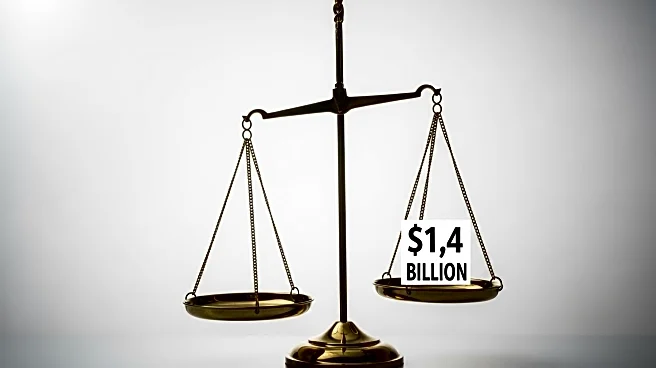What's Happening?
The Supreme Court has rejected an appeal from Alex Jones, leaving in place a $1.4 billion judgment against him for defamation related to his claims about the Sandy Hook Elementary School shooting. Jones had argued that the judgment was unfairly imposed
without a trial, but the court dismissed his appeal without comment. The judgment stems from Jones' assertions that the 2012 shooting was a hoax, causing distress to the victims' families. The decision allows the enforcement of the jury's verdict, which includes punitive damages against Jones and his company, Free Speech Systems.
Why It's Important?
This decision is significant as it reinforces accountability for spreading false information and causing harm through defamation. The ruling underscores the legal consequences of conspiracy theories that affect victims and their families. It also highlights the judiciary's stance on protecting individuals from harmful misinformation. The financial implications for Jones and his company are substantial, potentially affecting his ability to continue broadcasting and influencing public discourse. The case serves as a precedent for similar defamation lawsuits, emphasizing the importance of factual reporting and the repercussions of false claims.
What's Next?
Jones is facing additional legal challenges, including a separate $49 million judgment in Texas. The enforcement of the current judgment may lead to the liquidation of Infowars' assets, as the bankruptcy proceedings continue. The legal battles may impact Jones' broadcasting operations and financial stability. Stakeholders, including media companies and legal experts, will be watching the outcomes closely, as they could influence future defamation cases and media accountability standards.
Beyond the Headlines
The case raises ethical questions about the balance between free speech and the responsibility to avoid harm through misinformation. It highlights the cultural impact of conspiracy theories and the role of media in shaping public perception. The legal proceedings may prompt discussions on the limits of free speech and the need for regulations to prevent the spread of harmful falsehoods.














